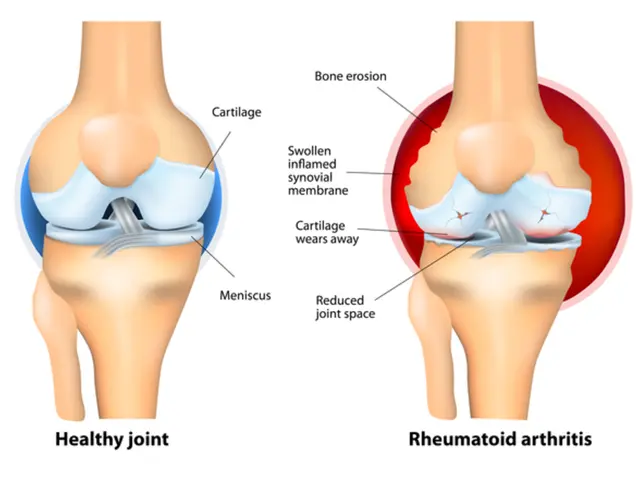Uncovering the Hidden Link Between Past Experiences and Current Anxiety Issues?
Anxiety is a complex mental health condition that affects millions of people worldwide, impacting their daily lives in significant ways. This article aims to shed light on the various factors contributing to anxiety, as well as practical strategies for managing and overcoming it.
The Root Causes of Anxiety
While the exact causes of anxiety are not fully understood, a combination of genetic, environmental, and psychological factors is believed to play a role. For instance, certain genetic variants, such as those in the RBFOX1 gene, can increase the risk of developing anxiety disorders [1][5]. Brain structure differences, particularly in the amyggdala and hippocampus, which are associated with fear processing and memory of threatening events, have also been linked to anxiety [2].
Personality traits, such as perfectionism or low self-esteem, can heighten sensitivity to stress, making individuals more prone to anxiety [5]. Additionally, factors like trauma, extreme or chronic stress, substance abuse, and certain medical conditions can trigger or exacerbate anxiety [3][5].
Overcoming Anxiety: A Multi-faceted Approach
Overcoming anxiety requires a holistic approach that addresses both the neurobiological roots and the cognitive-behavioral patterns sustaining anxiety. This may include therapy, medication, lifestyle changes, and self-care practices.
Therapy and Self-care
Cognitive-behavioral therapy (CBT) is a common therapeutic approach used to treat anxiety disorders. It focuses on identifying and challenging negative thought patterns and developing coping strategies [4]. Understanding and restructuring anxious thoughts is crucial in managing anxiety [2].
Mindfulness practices, such as deep breathing exercises, meditation, and body scans, are effective in managing anxiety by reducing stress, promoting relaxation, and increasing self-awareness [2][4]. Addressing trauma and seeking therapy can also help heal past experiences that may have sensitized the brain's fear and stress circuits [3][5].
Lifestyle Changes
Stress management and workload control are essential in managing anxiety. Strategies like prioritizing tasks, setting boundaries, and gaining greater control over work conditions can alleviate anxiety [4]. Limiting substance use, including alcohol, caffeine, nicotine, and recreational drugs, may also help reduce anxiety symptoms or prevent withdrawal-related anxiety [1][5].
Medical Evaluation
A medical evaluation is important if anxiety is new or worsening. This can help identify any underlying medical conditions (such as thyroid, heart, or diabetes) or medication side effects that may be contributing to anxiety [5].
Remember, You Are Not Alone
If you are struggling with anxiety, remember that you are not alone. There is hope for a brighter future. Seeking professional help from a mental health professional is crucial when dealing with anxiety for an accurate diagnosis, individualized treatment plan, and support throughout the recovery process.
Understanding the complexities of anxiety and the various strategies for managing it can empower individuals to take control of their mental health journey and find relief from the debilitating effects of anxiety.
Mental health professionals often recommend cognitive-behavioral therapy (CBT) and mindfulness practices as effective strategies for managing anxiety, as they focus on identifying and challenging negative thought patterns, and enhancing self-awareness [2][4]. It's essential to remember that if anxiety is new or worsening, a medical evaluation can help identify any underlying medical conditions that may be contributing to an individual's anxiety [5]. By addressing mental health challenges from a holistic perspective, including therapy, lifestyle changes, self-care, and medical evaluations as needed, one can find a way to overcome anxiety and improve overall health and wellness.





